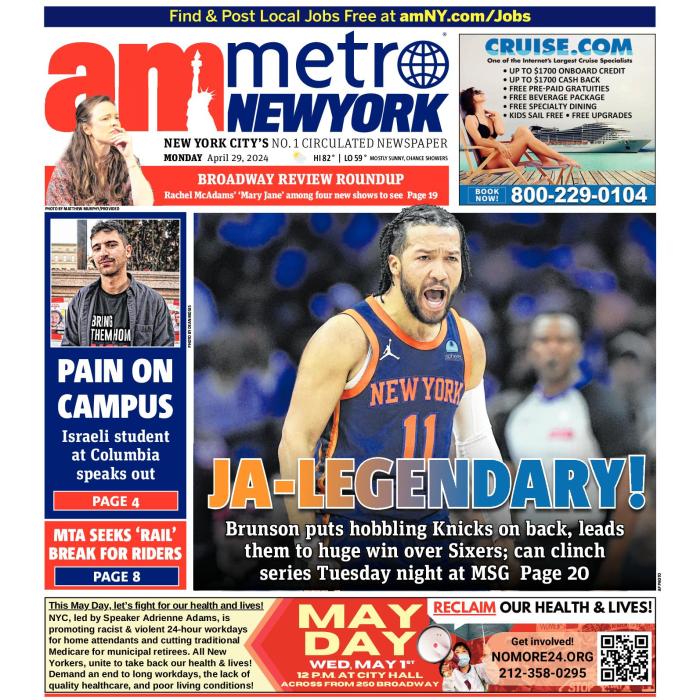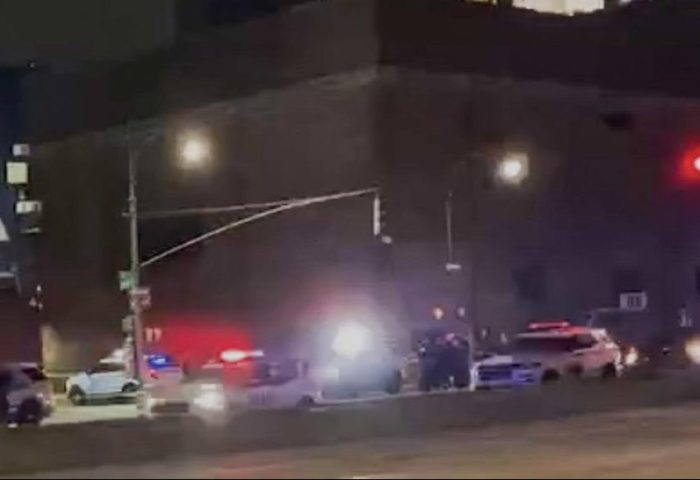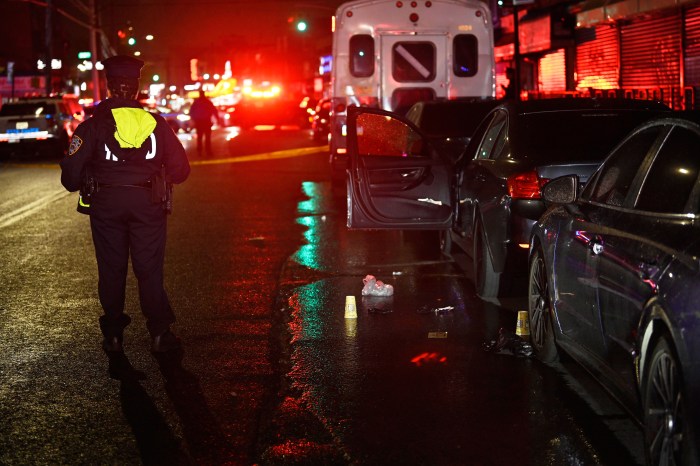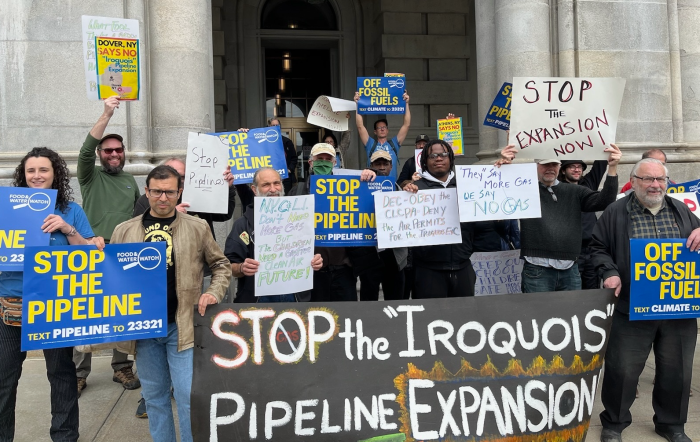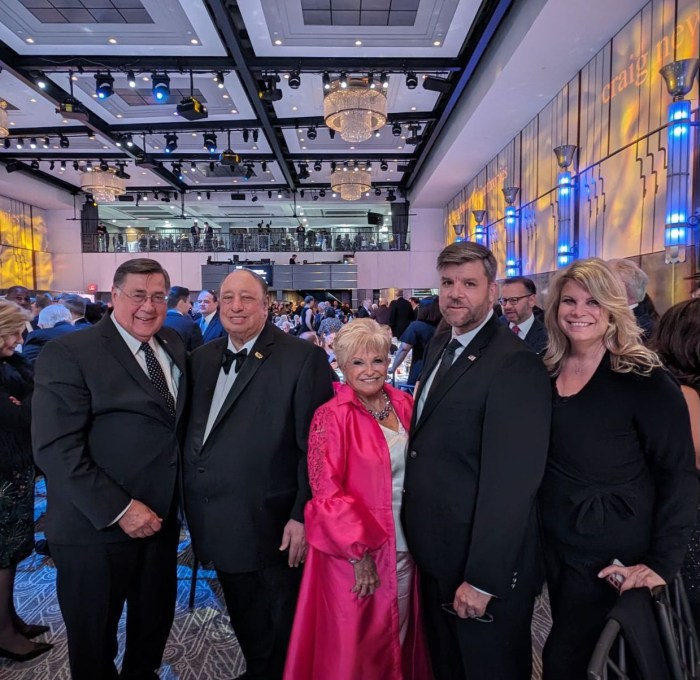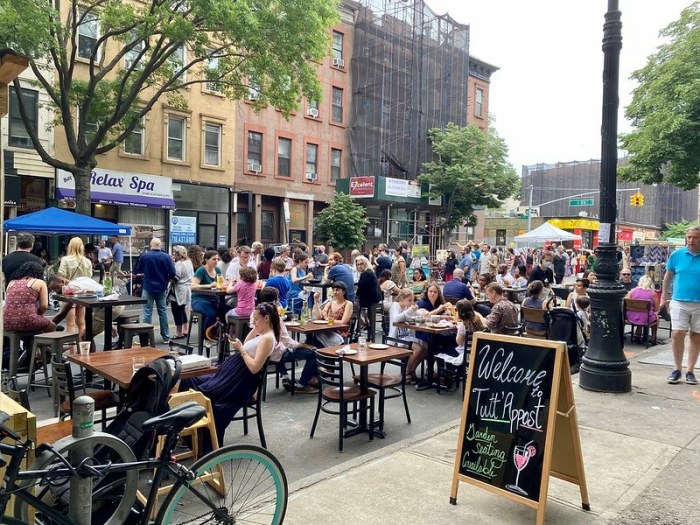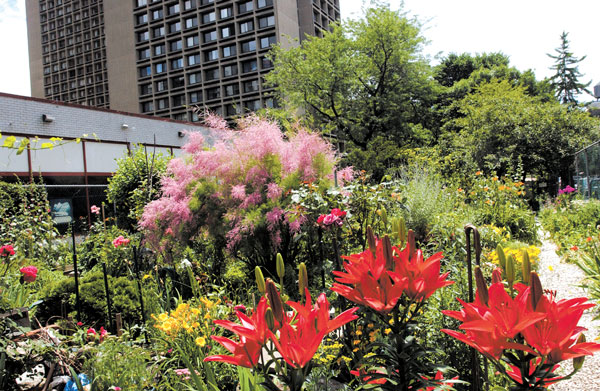
BY LINCOLN ANDERSON | Opponents of N.Y.U.’s superblocks mega-development plan claimed a major victory Tuesday, calling it a highly encouraging sign for a community lawsuit against the project.
State Supreme Court Judge Donna Mills allowed plaintiffs to proceed with discovery — accessing archived correspondence — on whether the university and the city colluded over a period of decades to block several open-space strips along Mercer St. and LaGuardia Place from being transferred to the Parks Department.
About 100 area residents and activists packed the Centre St. courtroom, listening to the plaintiffs’ attorney and the city’s and N.Y.U.’s attorneys argue for and against discovery. Among them were actor Matthew Broderick and his friend screenwriter Kenneth Lonergan, as well as members of N.Y.U. Faculty Against the Sexton Plan.
After hearing an hour of back-and-forth, Mills ruled discovery could proceed. She set the next court date for March 12, when, Mills ordered, the Bloomberg administration and N.Y.U. must “show cause” why they think discovery should not be permitted.
The open strips are de facto parkland, the petitioners claim, meaning that the state Legislature would be required to authorize their transfer for any other use. Removing public parkland from park use is known as “alienation.”
The plaintiffs’ attorney is Randy Mastro, a former deputy mayor under Rudy Giuliani.
Speaking to a huddle of reporters after Tuesday’s hearing, Mastro said Mills O.K.’d discovery because, “The facts proved that, over a period of decades, the Parks Department managed the properties, had signs on the properties, and one of [the strips] was transferred to Parks — Mercer Playground — for which there was a dedication ceremony in 1999, and then another ceremony in 2010 for a garden within it.
“To give away parks — you have a Public Trust Doctrine,” Mastro said, referring to the concept of alienation. “They’ve been using these tracts for public parks for decades,” he said of local residents.
“If it walks like a park, and talks like a park and looks like a park — it’s a park,” Mastro asserted.
Broderick grew up in the Village and still lives here, with his wife, Sarah Jessica Parker, and their three children. Lonergan, who wrote the screenplays for “Gangs of New York” and “Analyze This,” and Broderick met while students at the progressive but now-defunct Walden High School, which used to be on the Upper West Side.
“N.Y.U. has taken more and more of what’s unique about the Village,” Broderick said. “Parks make the city livable.”
“The university doesn’t own Greenwich Village, and the part they do own they’re destroying,” Lonergan said. “And it’s not for the students, it’s for money.”
But an N.Y.U. spokesperson, in a statement released after the hearing, downplayed the judge’s ruling as just “procedural.”
“Nothing changes as a result of today’s hearing,” said Philip Lentz. “The decision to sign the order to show cause was merely a procedural move. As the case proceeds, the well-documented history of this site will demonstrate that the properties in question have long been recognized as Department of Transportation strips, not parkland. The court proceeding today was an attempt to delay the scheduled judicial process and it did not succeed.”
Under N.Y.U.’s plan, it would purchase from the city one of the strips, along Mercer St. between Houston and Bleecker Sts. This strip is critical for N.Y.U.’s plan, because the university intends to use part of it for the new footprint of its “Zipper Building,” which would replace Coles gym.
Although N.Y.U. has pledged to support the transfer to the Parks Department of two other strips — on Mercer and LaGuardia between Bleecker and W. Third Sts. — the university wants to maintain easement rights on these properties. N.Y.U. says this is needed to help the construction of planned new infill buildings on the Washington Square Village block.
Further bolstering the plaintiffs’ case in a big way, former longtime Parks Commissioner Henry Stern recently provided a bombshell affidavit supporting the community lawsuit. Stern was Parks commissioner from 1983 to 1990 and then again from 1994 to 2000 — one of the longest-serving Parks commissioners in the city’s history. According to him, there is no question the strips are, in fact, parkland.
“In my opinion, all four of these sites have been dedicated as public parks, either expressly or impliedly, and therefore cannot be alienated by the city without the state Legislature’s prior approval under the Public Trust Doctrine,” Stern stated in his affidavit. “It was always the city’s intent in continuously making these sites available to the public for recreational use over many years to treat them as dedicated parkland.”
Stern pointed out that Central Park has not even been mapped as parkland — and that N.Y.U. couldn’t build there, either, without approval by the state Legislature.
Stern slammed N.Y.U. the “800-pound gorilla in the room…solely responsible for blocking the formal mapping of these sites as parks.
“It is an outrage for N.Y.U. now to argue its own actions and machinations in blocking formal mapping somehow evidence an intent on the city’s part not to dedicate these sites as parkland,” he added. “Through its longtime actions, maintenance and treatment of these parkland parcels, the city clearly manifested its intent to impliedly dedicate these four superblocks sites as parks. These four open spaces have been considered as parkland by generations of children. These are parks, plain and simple.”
Assemblymember Deborah Glick also submitted an affidavit, calling the approval of the N.Y.U. plan an illegal giveaway of public land.
“The issue of parkland alienation is central to this case,” Glick declared. “Greenwich Village possesses among the least amount of open space in New York City, the dearth of which is so acute, that every strip of open space — down to the smallest traffic island — is closely guarded… . [The City Council] chose here…to bypass the state Legislature and purport to act on its own authority. In doing so, it has violated state law embodying the Public Trust Doctrine.”
The N.Y.U. plan would add about 2 million square feet of space on the university’s two South Village superblocks and would cost a whopping $6 billion.
The City Council approved the plan this past July. Before the vote, Council Speaker Christine Quinn first cleared the balcony after angry Villagers refused her single warning to stop booing and catcalling.
In September, a broad coalition of 11 groups — including both community and citywide organizations — filed suit against the N.Y.U. plan
The plaintiffs include N.Y.U. FASP, Greenwich Village Society for Historic Preservation, Historic Districts Council, Washington Square Village Tenants Association, East Village Community Coalition, Friends of Petrosino Square, LaGuardia Corner Gardens, Lower Manhattan Neighbors Organization, Soho Alliance, Bowery Alliance of Neighbors and Noho Neighborhood Association.
The strips are, in fact, left over from Robert Moses’ street-widening schemes from decades ago, when the planning czar sought to plow a cross-town highway through Downtown, with accompanying wide boulevards that would feed into it.
Officially, still mapped as part of the street, the strips have been under the jurisdiction of the city’s Department of Transportation. However, their use is clearly as parks — including a dog run, a children’s playground, community gardens, a pseudo-primeval garden called “Time Landscape” and other extensive plantings.
A huge battle of past decades involved another one of the open-space strips, which used to be on LaGuardia Place between Washington Square South and W. Third St. The Board of Estimate — the City Council’s predecessor — approved the transfer of this strip to N.Y.U. so that it could extend the footprint of its massive Bobst Library, designed by Philip Johnson.
Bo Riccobono, a plaintiff in the lawsuit against the current N.Y.U. 2031 plan, said — who knows? — if they win on the park-alienation issue, they might revisit the Bobst strip battle of decades ago.
“This throws it into question,” he said, adding, “Maybe we’ll seek damages.”
